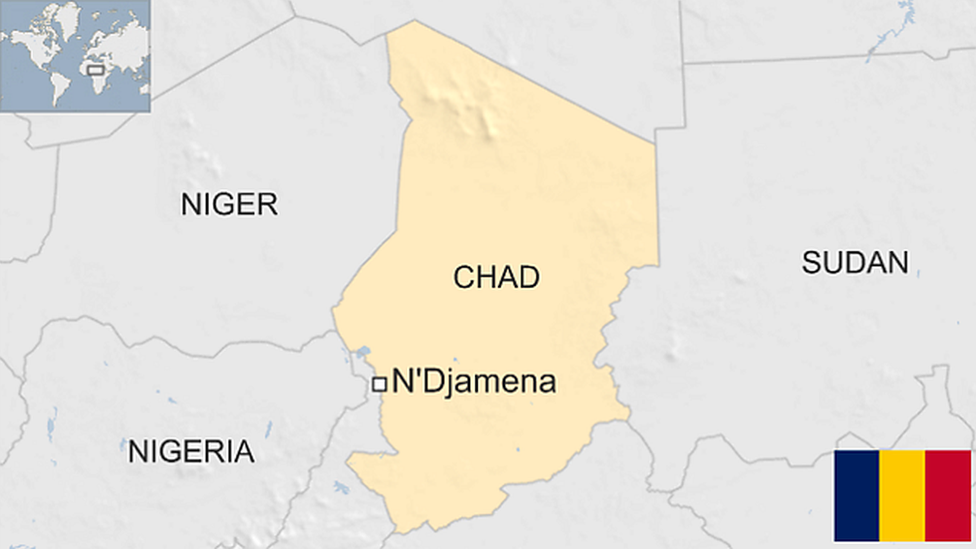Chad after Idriss Déby: African Union urges end to military rule
- Published
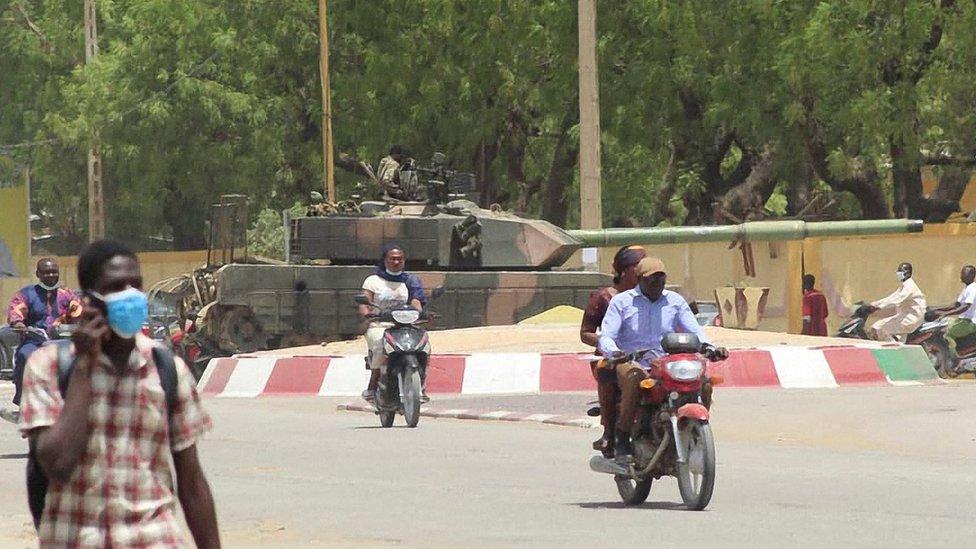
Chad's army is central to the fight against Islamist militants in West Africa
The African Union has called for an end to military rule in Chad, whose president was killed by rebels.
The army immediately announced that Idriss Déby's son would head a military council for 18 months before elections were held.
Former colonial power France, which has a large military base in Chad, appeared to back the takeover for "stability" amid "exceptional circumstances".
Opposition parties have also condemned what they called a "dynastic coup".
Trade union have called for a general strike, while rebel group Fact said Chad was "not a monarchy".
The African Union's Peace and Security Council voiced "grave concern" about the military takeover which put 37-year-old Gen Mahamat Déby Itno in charge and saw parliament dissolved.
The AU's 15-member security body discussed the situation on Thursday but waited until after Déby's funeral on Friday to issue its statement.
Here's what you need to know about Mahamat Déby, the new leader of Chad
It said power should be restored to civilian authorities "expeditiously".
According to the constitution, the speaker of parliament should take over in the event of the president's death, and organise new elections.
Déby, 68, had just been elected for a sixth term in office when the army announced on Tuesday that he had been fatally wounded in a clash with rebel Fact fighters in the northern region of Kanem.
He was a key ally of France in the fight against jihadist groups across West Africa and French President Emmanuel Macron was among the foreign leaders and thousands of Chadians who paid their respects at his funeral.
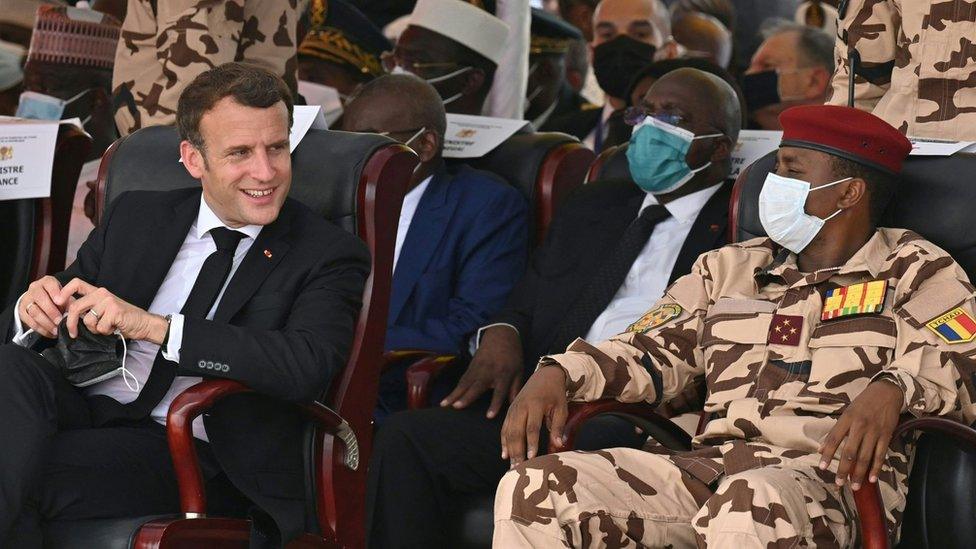
President Macron was seated next to Gen Mahamat Déby Itno during Friday's funeral
Standing beside Déby's coffin, Mr Macron said: "You lived as a soldier, you died as a soldier with weapons in hand. You gave your life for Chad in defence of its citizens."
While he was in Chad, Mr Macron held talks with Gen Mahamat Déby Itno, along with the leaders of Burkina Faso, Mali, Mauritania and Niger, which are all battling various Islamist groups, some of which are linked to al-Qaeda and others the Islamic State group.


'Military divisions spell fragile beginnings'
Analysis by Lalla Sy, BBC News
Chad's president was one of Africa's longest-serving rulers and a close ally of the Western powers, especially France.
The support given to president Idriss Déby - officially aimed at fighting against rebel groups and Islamist militants in West and Central Africa - consisted of intelligence for the Chadian army, aerial surveillance, and even protecting strategic points for the Chadian army.
The presence of a foreign army is never well received by the local population, especially when they are soldiers of the former colonial power.
The idea that France deliberately maintains a certain chaos in the region to defend its interests is believed by many.
But divisions within Chad's military - who only partially support the new leader while rebels reject him outright - raises fears of instability as a fragile transition gets underway.
Related topics
- Published20 April 2021
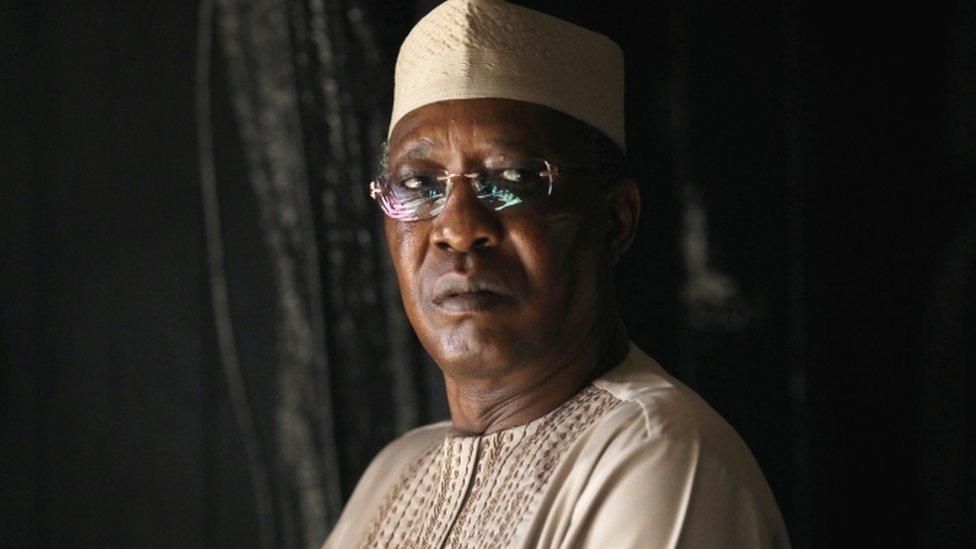
- Published21 April 2021
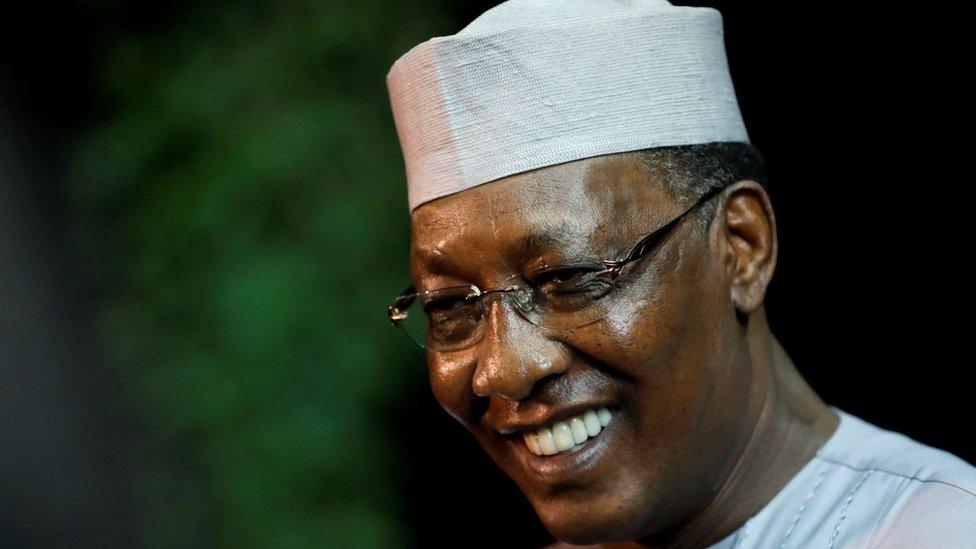
- Published21 April 2021
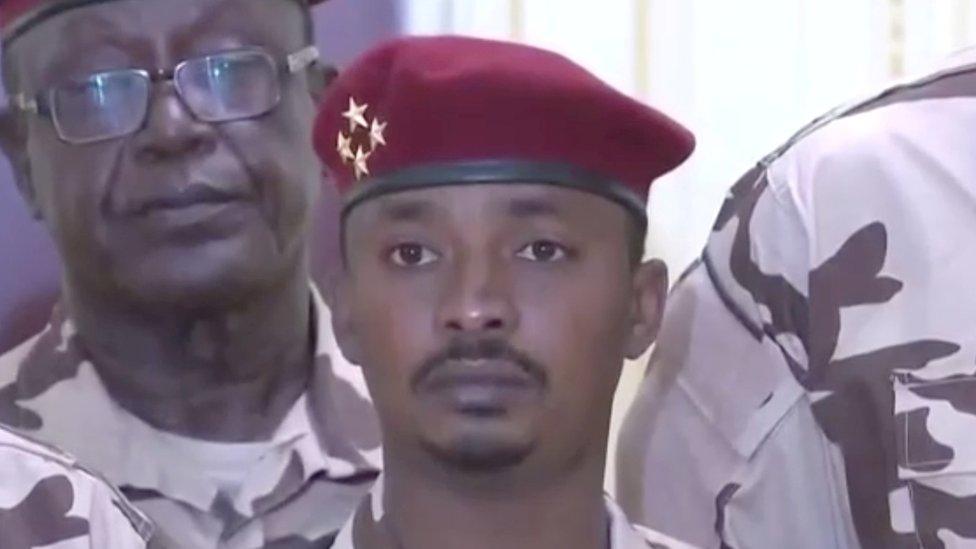
- Published9 July 2024
